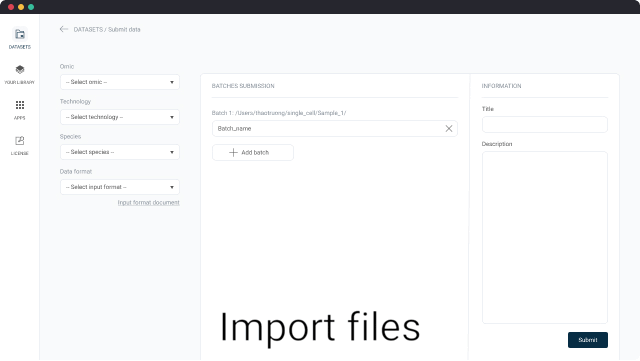Type I interferon autoantibodies are associated with systemic immune alterations in patients with COVID-19
Monique G. P. van der Wijst, Sara E. Vazquez, George C. Hartoularos, Paul Bastard, Tianna Grant, Raymund Bueno, David S. Lee, John R. Greenland, Yang Sun, Richard Perez, Anton Ogorodnikov, Alyssa Ward, Sabrina A. Mann, Kara L. Lynch, Cassandra Yun, Diane V. Havlir, Gabriel Chamie, Carina Marquez, Bryan Greenhouse, Michail S. Lionakis, Philip J. Norris, Larry J. Dumont, Kathleen Kelly, Peng Zhang, Qian Zhang, Adrian Gervais, Tom Le Voyer, Alexander Whatley, Yichen Si, Ashley Byrne, Alexis J. Combes, Arjun Arkal Rao, Yun S. Song, Gabriela K. Fragiadakis, Kirsten Kangelaris, Carolyn S. Calfee, David J. Erle, Carolyn Hendrickson, Matthew F. Krummel, Prescott G. Woodruff, Charles R. Langelier, Jean-Laurent Casanova, Joseph L. DeRisi, Mark S. Anderson, Chun Jimmie Ye, and on behalf of the UCSF COMET Consortium
Abstract
Neutralizing autoantibodies against type I interferons (IFNs) have been found in some patients with critical coronavirus disease 2019 (COVID-19), the disease caused by severe acute respiratory syndrome coronavirus 2 (SARS-CoV-2). However, the prevalence of these antibodies, their longitudinal dynamics across the disease severity scale, and their functional effects on circulating leukocytes remain unknown. Here, in 284 patients with COVID-19, we found type I IFN–specific autoantibodies in peripheral blood samples from 19% of patients with critical disease and 6% of patients with severe disease. We found no type I IFN autoantibodies in individuals with moderate disease. Longitudinal profiling of over 600,000 peripheral blood mononuclear cells using multiplexed single-cell epitope and transcriptome sequencing from 54 patients with COVID-19 and 26 non–COVID-19 controls revealed a lack of type I IFN–stimulated gene (ISG-I) responses in myeloid cells from patients with critical disease. This was especially evident in dendritic cell populations isolated from patients with critical disease producing type I IFN–specific autoantibodies. Moreover, we found elevated expression of the inhibitory receptor leukocyte-associated immunoglobulin-like receptor 1 (LAIR1) on the surface of monocytes isolated from patients with critical disease early in the disease course. LAIR1 expression is inversely correlated with ISG-I expression response in patients with COVID-19 but is not expressed in healthy controls. The deficient ISG-I response observed in patients with critical COVID-19 with and without type I IFN–specific autoantibodies supports a unifying model for disease pathogenesis involving ISG-I suppression through convergent mechanisms.
Datasets
1. Type I interferon autoantibodies are associated with systemic immune alterations in patients with COVID-19
Metadata
DROPLET.TYPE
BEST.GUESS
pool
well
pool_well
batch
freemux_cluster
donor_id
timepoint
respiratory_support_D0
onset_to_D0_days
D0_to_death
race
consent
death
pulmonary_infection
non_pulmonary_infection
leiden
original_leiden
ct1
ct2
ct3
WBC_count1
WBC_count2
WBC_count3
Lymphocyte_count
Monocyte_count
cell_group
exclude_restricted
COVID_status
admission_level
respiratory_support
NIH_clinical
COVID_severity
COVID_severity_merged
NIH_ordinal
tissue_ontology_term_id
assay_ontology_term_id
disease_ontology_term_id
cell_type_ontology_term_id
self_reported_ethnicity_ontology_term_id
sex_ontology_term_id
organism_ontology_term_id
suspension_type
donor_age
development_stage_ontology_term_id
tissue_type
cell_type
assay
disease
organism
sex
tissue
self_reported_ethnicity
development_stage
other_multiple_races200760 cells native_hawaiian_other_pacific_islander31780 cells black_african_american9869 cells COVID19_and_bacterial83950 cells COVID19_and_other_viral54776 cells bacterial_only47914 cells T8_TEMRA_GZMH+56743 cells B_Mem_Prolif_Early6944 cells T4_Mem_Prolif_Early4919 cells T_NK_Prolif_Late4569 cells T8_Mem_Prolif_Early3358 cells NK_Prolif_Early2520 cells B_Preplasma_Early2156 cells B_Preplasma_Late1597 cells B_Mem_Prolif_Late593 cells Moderate_Positive157077 cells Critical_Positive132113 cells Severe_Positive104001 cells Severe_Negative32703 cells Critical_Positive_anti-IFN32207 cells Critical_Negative24480 cells Moderate_Negative22647 cells Moderate_Positive157077 cells Critical_Positive132113 cells Severe_Positive104001 cells Critical_Positive_anti-IFN32207 cells UBERON:0000178600929 cells MONDO:0100096425398 cells HANCESTRO:0014151845 cells HANCESTRO:0005150619 cells HANCESTRO:000888063 cells HANCESTRO:001731780 cells NCBITaxon:9606600929 cells HsapDv:000008795701 cells HsapDv:000016734861 cells HsapDv:000015733077 cells HsapDv:000013725747 cells HsapDv:000013621234 cells HsapDv:000020820703 cells HsapDv:000014920562 cells HsapDv:000015220323 cells HsapDv:000013919916 cells HsapDv:000009519679 cells HsapDv:000013117733 cells HsapDv:000016217087 cells HsapDv:000013516914 cells HsapDv:000016114314 cells HsapDv:000013314243 cells HsapDv:000015613966 cells HsapDv:000020913717 cells HsapDv:000012713194 cells HsapDv:000015912643 cells HsapDv:000012812345 cells HsapDv:000017012209 cells HsapDv:000013811044 cells HsapDv:000016810940 cells HsapDv:000015510374 cells HsapDv:000017310016 cells classical monocyte159044 cells CD4-positive, alpha-beta T cell155448 cells CD8-positive, alpha-beta T cell107583 cells natural killer cell62210 cells non-classical monocyte23298 cells gamma-delta T cell12068 cells conventional dendritic cell7895 cells plasmacytoid dendritic cell2224 cells progenitor cell2011 cells 10x 5' transcription profiling600929 cells respiratory system disorder79830 cells Hispanic or Latin American151845 cells African American9869 cells human adult stage95701 cells 73-year-old human stage34861 cells 63-year-old human stage33077 cells 43-year-old human stage25747 cells 42-year-old human stage21234 cells 82-year-old human stage20703 cells 55-year-old human stage20562 cells 58-year-old human stage20323 cells 45-year-old human stage19916 cells 80 year-old and over human stage19679 cells 37-year-old human stage17733 cells 68-year-old human stage17087 cells 41-year-old human stage16914 cells 67-year-old human stage14314 cells 39-year-old human stage14243 cells 62-year-old human stage13966 cells 83-year-old human stage13717 cells 33-year-old human stage13194 cells 65-year-old human stage12643 cells 34-year-old human stage12345 cells 76-year-old human stage12209 cells 44-year-old human stage11044 cells 74-year-old human stage10940 cells 61-year-old human stage10374 cells 79-year-old human stage10016 cells 47-year-old human stage9096 cells 71-year-old human stage7748 cells 77-year-old human stage7711 cells 35-year-old human stage7699 cells 50-year-old human stage7218 cells 53-year-old human stage7199 cells 75-year-old human stage6745 cells 59-year-old human stage5721 cells 48-year-old human stage4246 cells 31-year-old human stage4173 cells 86-year-old human stage3995 cells 60-year-old human stage3891 cells 25-year-old human stage3702 cells 66-year-old human stage3232 cells 49-year-old human stage3136 cells 69-year-old human stage1701 cells 78-year-old human stage1153 cells 38-year-old human stage21 cells Analyze this study
Source data
https://cellxgene.cziscience.com/collections/7d7cabfd-1d1f-40af-96b7-26a0825a306d
Alias names
GSE168453, PMID34429372, PMC8601717
Cite this study
van der Wijst, M.G., Vazquez, S.E., Hartoularos, G.C., Bastard, P., Grant, T., Bueno, R., Lee, D.S., Greenland, J.R., Sun, Y., Perez, R. and Ogorodnikov, A., 2021. Type I interferon autoantibodies are associated with systemic immune alterations in patients with COVID-19. Science translational medicine, 13(612), p.eabh2624. https://doi.org/10.1126/scitranslmed.abh2624

